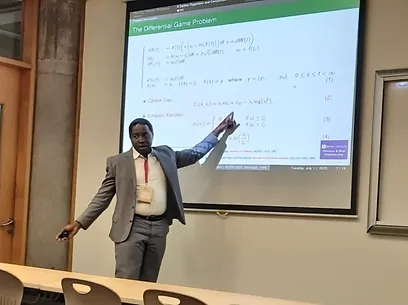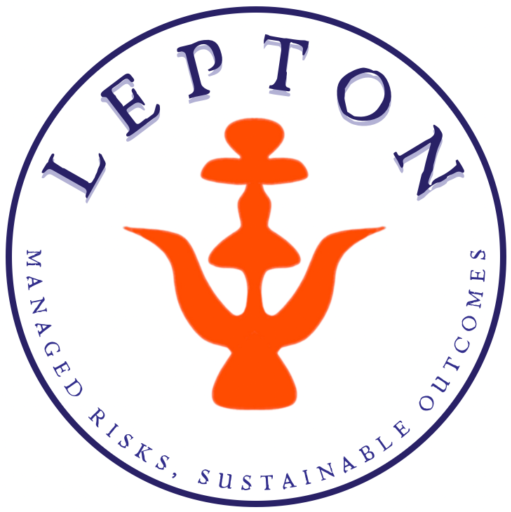 Harnessing Financial Innovation for a Greener Future: Bruno Kamdem’s Insights at IFORS 2023
Harnessing Financial Innovation for a Greener Future: Bruno Kamdem’s Insights at IFORS 2023
The 23rd International Federation of Operational Research Societies (IFORS) conference, held on July 11th, 2023, in Santiago, Chile, featured Bruno Kamdem, co-founder of Lepton Actuarial & Consulting and professor at NYU, as one of the esteemed speakers. Bruno Kamdem is widely respected among researchers for his profound insights in the fields of climate economics and financial innovation. Amid the stunning backdrop of the Chilean capital, Kamdem shared his groundbreaking research and shed light on the critical role of policies and financial instruments in the battle against climate change.
COVID-19’s Temporary Emission Decline: A Wake-Up Call for Sustained Change
Kamdem’s research abstract centered on an issue of immense global significance – the precarious state of greenhouse gas emissions. The initial decline in emissions during the COVID-19 pandemic due to restrictions raised hope, but Kamdem emphasized the need for long-term strategies. He highlighted that without concerted efforts from governments to prioritize climate change policies, emissions were likely to revert to pre-pandemic levels.
Integrating Competition and Climate Policy for Sustainable Change
One of the most intriguing aspects of Kamdem’s research is his proposition to integrate competition within commodity extracting and utility companies into policies aimed at reducing CO2 emissions. He used the example of the new U.S. administration’s commitment to cutting emissions significantly by 2030. Kamdem argued that for these policies to succeed, they must align with the dynamics of the market while considering competition and regulation.
A Novel Approach: Carbon Auction Derivative
Central to Kamdem’s research was his proposal for a groundbreaking financial instrument – the carbon auction derivative. This instrument addresses the complex interplay between competition and regulation in carbon markets. It functions as both a put and a call option on carbon permits, and its pricing is informed by the commodity price and carbon auction quotes.
The technical sophistication of Kamdem’s proposal was evident in his formulation of the carbon auction derivative, which is designed to navigate the intricacies of commodity price behavior following a mean-reverting regime-switching jump-diffusion Levy process. This approach brings a level of sophistication to climate economics rarely seen before.
Aiming for Equilibrium: Non-Cooperative Differential Games
Kamdem’s research delved into the realm of game theory, highlighting the quantity of commodities produced in a non-cooperative differential game. This game’s Nash equilibrium, a central concept in game theory, helps define the optimal strategies for commodity companies in the context of carbon auctions and emission reduction goals.
Tackling Liquidity Risk and Enhancing Emission Reductions
Kamdem’s research also addressed the critical issue of auction liquidity risk. He emphasized that both commodity extracting and utility companies can wield the carbon auction derivative as a tool to extract resources more efficiently while minimizing pollution. This approach could lead to a more sustainable balance between profit and environmental responsibility.
Government Taxation and Emission Reduction Success
A notable aspect of Kamdem’s research is its relevance to policymakers. He underlined the importance of government-imposed taxes on commodity companies’ capacities to achieve meaningful reductions in CO2 emissions. This link between taxation, capacity, and emission reduction serves as a guide for policymakers to effectively design and implement strategies for a greener future.
Bruno Kamdem’s presentation at IFORS 2023 showcased the potential of financial innovation in combating climate change. His research, with its focus on the carbon auction derivative, competition-regulation dynamics, and game theory, presents a holistic approach to tackling a complex global issue. As the world grapples with the urgency of reducing greenhouse gas emissions, Kamdem’s insights offer a beacon of hope and innovation for a greener and more sustainable future.
